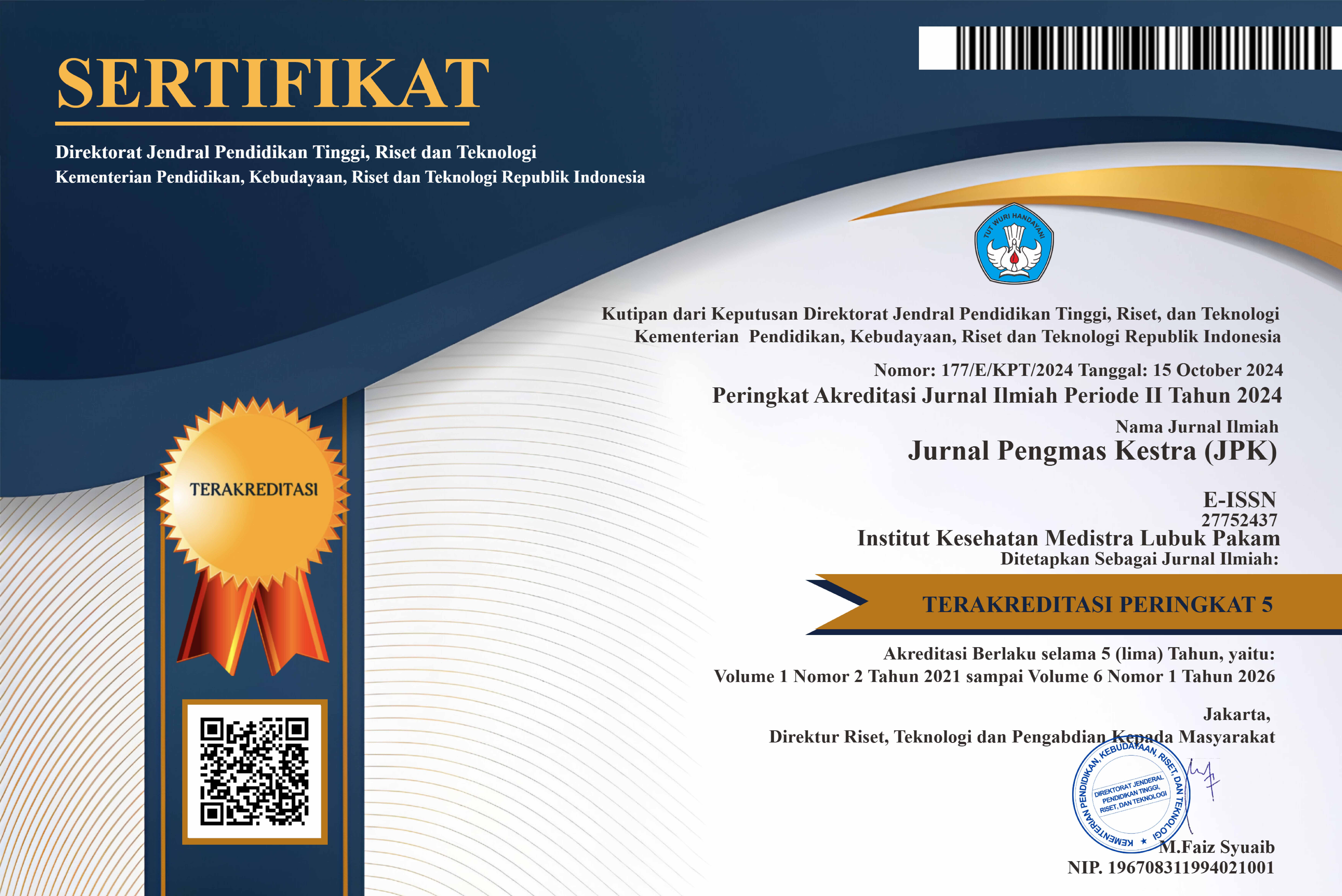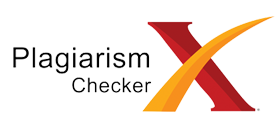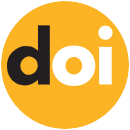Education on The Application of The 3J Diet to Increase Knowledge of Diabetes Mellitus Patients in The Community of Bandar Kupa, Percut Sei Tuan District, Deli Serdang District
DOI:
https://doi.org/10.35451/jpk.v3i2.1998Keywords:
Education; Community Service; Diabetes MellitusAbstract
Degenerative diseases become dangerous killer diseases if not treated properly. Diabetes mellitus (DM) is a non-communicable disease which can be a complication that causes other dangerous diseases. The incidence of DM is still worrying as a contributor to killer diseases and in North Sumatra the incidence continues to increase every year. Based on the existing number of DM sufferers, 25% of sufferers know that they are DM sufferers, the rest do not know yet and this remaining number has a big risk of causing bodily health problems and a risk of complications from other, more dangerous diseases. Consuming foods high in simple carbohydrates, high in sugar, subjected to a lot of processing and low in complex nutrients and fiber can cause disturbances in the function of the insulin hormone, leading to the emergence of DM. In an effort to treat and increase public knowledge regarding DM disease and control the condition of DM sufferers, this is through the implementation of the 3J diet (right schedule, right amount and right type). This educational service activity was carried out in Bandar Kupa, Percut Sei Tuan District, Deli Serdang district on 5-7 June 2023. This community service activity was carried out through several stages. At the initial stage, observations were carried out, then continued with the planning stage, education, delivery of educational material and the evaluation stage of acceptance of the material that had been delivered during the service education process. The results obtained showed that in terms of participant attendance, there was community enthusiasm in participating in the education provided. The results of the educational evaluation, increasing the knowledge of the community of education participants, decreased with the level of knowledge from less than 48% to 12%, there was an increase in sufficient knowledge before education by 32%, increasing to 68% and the level of good knowledge did not increase, namely at a percentage of 20%.References
Arief, MH. 2020. Penerapan diet 3J untuk mengontrol kadar gula darah pada pasien diabetes melitus tipe 2. Magelang : Magelang Muhammadiyah University
Darmawan, S., Sriwahyuni,S. 2019. Peran diet 3J pada pasien diabetes melitus di Puskesmas Sudiang Raya Makassar. Nursing Inside Community. 1(3) : 91-95.
Falah, F., Apriana, R. 2022. Edukasi pengelolaan diet 3J untuk mengontrol kadar glukosa darah pada Masyarakat penderita diabetes mellitus di wilayah kerja Puskesmas Kota Timur. Jurnal Altifani Penelitian dan Pengabdian kepada Masyarakat. 2(5) : 411-418.
Irwanto, R., Putri, NE., Triandita, N. (2021). Peranan kedelai hitam dan minyak sawit mentah dalam mengendalikan penyakit diabetes melitus tipe 2. Jurnal Teknologi Pengolahan Pertanian. 3(1): 33-43.
[Kemenkes RI] Kementerian Kesehatan Republik Indonesia. (2018). Hasil Utama Riskesdas 2018. Jakarta : Kementerian Kesehatan republic Indonesia
Pinem R, Pulungan AS, Elisa, Marlina, Hulu M, Bancin LJ, Hasibuan AM. (2022). Profil Kesehatan Provinsi Sumatera Utara Tahun 2022. Medan : Dinas Kesehatan Sumatera Utara
Santi, JS., Septiani, W. 2021. Hubungan penerapan pola diet dan aktivitas fisik dengan status kadar gula darah pada penderita DM Tipe 2 di RSUD Petala Bumi Pekanbaru tahun 2020. Jurnal Kesehatan Masyarakat. 9(5) : 711-718.
Septiani, Tyas, PU. 2019. Pengaruh edukasi gizi terhadap pengetahuan dan kebiasaan makan pada peserta program pengelolaan penyakit kronis (prolanis) Diabetes Melitus tipe 2 di Kelurahan Penggilingan I Elok Jakatra Timur. Jurnal Kesehatan Masyarakat. 5 (2) : 112-123.
a[WHO] World health Organization. 2023. The Global Health Observatory : SDGs Target. [diakses di internet : 2023 Desember 1]. pada https://www.who.int/data/gho/data/themes/topics/sdg-target-3_4-noncommunicable-diseases-and-mental-health
b[WHO] World health Organization. 2023. Diabetes. [diakses di internet : 2023 Desember 1]. pada https://www.who.int/news-room/fact-sheets/detail/diabetes
Downloads
Published
Issue
Section
License
Copyright (c) 2023 Reno Irwanto, Reni Novia; Wira Maria Ginting

This work is licensed under a Creative Commons Attribution 4.0 International License.
Copyright in each article is the property of the Author.




















